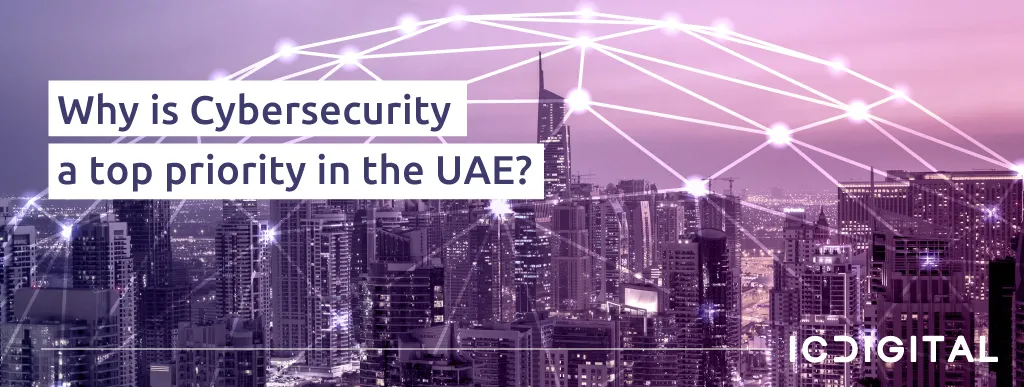
Why is Cybersecurity a top priority in the UAE?

Why is Cybersecurity a top priority In UAE?
The Middle East is one of the most digitally connected regions in the world. With high volume usage of internet and digital collateral in this region, it is also one of the most vulnerable to cyber-attacks.
In recent years, many companies have seen their networks compromised by hackers and have lost millions of dollars in business due to data breaches.
According to a survey by Cybereason, 84% of UAE companies paid the ransom in these attacks, which is more than 20% higher than the global average. Of the companies that paid, 90% experienced a second ransomware attack, and 59% found their data corrupted.
An increasing number of cyber attacks makes Cybersecurity a top priority In UAE.
Cybersecurity and law enforcement in UAE
Because of rising attacks, UAE has taken cybersecurity seriously for years. The government has invested heavily in national security and launched many initiatives to protect its citizens from cyber attacks.
On 2 January 2022, Federal Decree-Law No. 34 of 2021 on Combating Rumours and Cybercrimes took effect. The new law provides a comprehensive legal framework to address the concerns relating to the misuse and abuse of online technologies. It repeals Federal Law 5 of 2012 on Combating Cybercrimes, as amended.es.
The UAE has introduced several laws in this area, including laws related to personal data protection; computer crimes; cybercrime prevention; access control; laws against hacking; laws relating to interception and monitoring communications; laws relating to data protection authorities' powers; penalties for criminal offences related to cybercrime.
Challenges for Cybersecurity in Dubai
Even though the government is working to make the country more cyber-secure and robust, there are unique challenges that the UAE faces ahead, such as below:
- Ransomware Attacks
Ransomware attacks have been around for over three decades. Businesses, governments and individuals have all been victims of ransomware attacks.
As the word ransom suggests, it's hacking into a user's sensitive information and denying them access to it until a ransom amount is paid to hackers. Now, businesses that need access to their data to run their daily operations suffer a lot from this breach, highlighting a severe emphasis on data security strategies for businesses by them.
2. IoT Attacks
The increasing use of smart devices like wearable smartwatches or intelligent home devices has increased IoT attacks. In order to access your personal device that contains sensitive information, hackers use devices surrounding you and use them for malicious purposes.
Today, the IoT industry is a critical target. Approximately 12 billion devices will be online by 2022 and 25 billion by 2030- as per Statista data.
3. Cloud Attacks
Cloud computing has revolutionised the physical world of data storage. Cloud computing improves efficiency. However, cloud computing also opens up new avenues for data security breaches; businesses need to take steps toward protecting sensitive information stored in the cloud by maintaining encryption and authentication mechanisms.
4. Phishing attacks
Phishing is the practice of sending a fake email to trick users into giving up their private information. Once this sensitive information has been stolen, attackers can use it to commit fraud or identity theft.
According to a recent report by Kaspersky Lab, phishing attacks have increased by more than 200% over the past year.
Best Practices to Improve your Cybersecurity in UAE
Prevention is better than cure. To stop cybersecurity attacks, UAE's cyber-security culture needs to be strengthened. Some best practices to prevent cyber-attacks include:
- Raising cybersecurity awareness
- Conducting cybersecurity risk assessments
- Analysing potential commercial risks by considering how your business operates
- Protecting access with efficient identity management
- Implement zero trust to tighten cybersecurity
- Test your response plan to prepare for a cyberattack
- Update your procedures and employment agreements to reflect the new UAE data protection law
Takeaway:
Cybersecurity is a complex and complicated issue that requires a holistic approach. It's not just about technology and software. It's about people, processes, policies and culture.
ICD technologies offer comprehensive cybersecurity solutions to help companies protect, prevent and recover from security incidents. Get in touch today and strengthen your organisation's cyber security.
